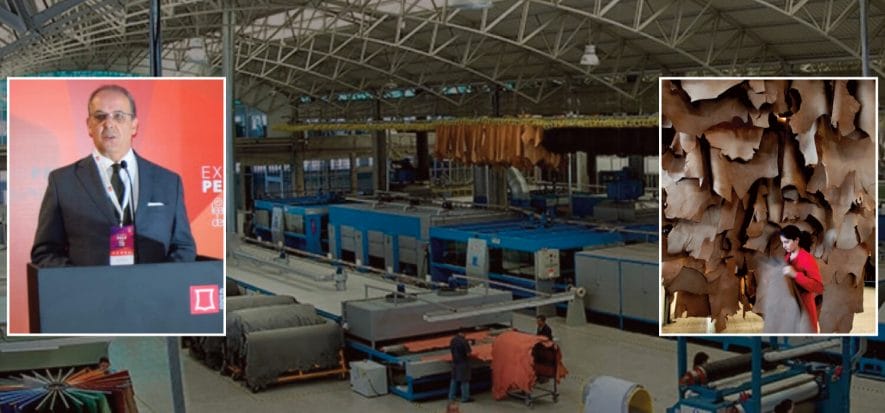If ignorance is “the very fertile ground” where vegan populism thrives, being that of the “movement for animal rights” that would like to remove leather in favour of alternative materials. Then only “knowledge” can stem the drift and provide everyone, consumers, politicians and administrators, with the tools to understand how things really are. Nuno Carvalho, president of APIC, the Portuguese tanning association, is convinced of this. On the other hand, there are many logical errors in the vegan propaganda, he observes: just report them to the public.
Vegan populism
“There are a number of transversal trends in contemporary society that demonstrate greater attention to sustainability and the environment – says the CEO of the Carvalhos group to Dinheiro Vivo -. The vegan lifestyle is perhaps one of those that stands out for its following. Brands, attentive to these potential customers, are developing more and more products for the segment”. The problem, however, is that radical greens base their communication on fake news.
And on the same fake news, then, brands build their marketing strategies. “For a vegan, leather is a target to be taken down – warns Carvalho -. But on the basis of a wrong and misleading premise”. Which is? “That animals are slaughtered specifically to obtain leathers for shoes, bags and clothing – he replies -. It is a terrible mistake: the heads are raised for meat, the tanning industry enhances a residue of the livestock industry, that otherwise will be disposed of”.
The logical fallacies
This is not the only logical mistake of veg populism. Green militants, opponents of the tanning and leather industries, advocate the so-called “vegan couro” (an expression fortunately banned in Italy by the Leather Decree). “There is no vegan couro – Carvalho points out -. There are synthetic products developed just for the vegan market. Materials trying to take advantage of genuine leather’ prestige to enhance a product that is only a derivative of petroleum, or a residue of another type processed in a resin”.
Preferring this stuff to a truly up-cycled material is a paradox: “The vegan’s concern for the environment leads to the production and consumption of items with a much lower degree of sustainability, and also of highly polluting and non-renewable origin”.
Knowledge
It is “the lack of information on what leather is and on the circularity of the tanning industry” that leaves “very fertile ground for the populism of animal rights movements”. This is why APIC calls for greater knowledge for consumers and the general public. As well as for politics. “Despite our efforts – Carvalho acknowledges -, we are not always able to convey the message to our government officials, whether it is the Ministry of the Environment or otherwise.
At this level, greater closeness and knowledge of the territory would be necessary”. Leather, Portuguese and European, has done a lot to update itself in terms of sustainability: that should be acknowledged.
Read also:
- Stop to “eco-friendly leather”: Portuguese tanners call for Brussels action
- Expopele is a showcase for tanning. And Carvalho (APIC) says he is sure: “We will have the law to protect leather”











